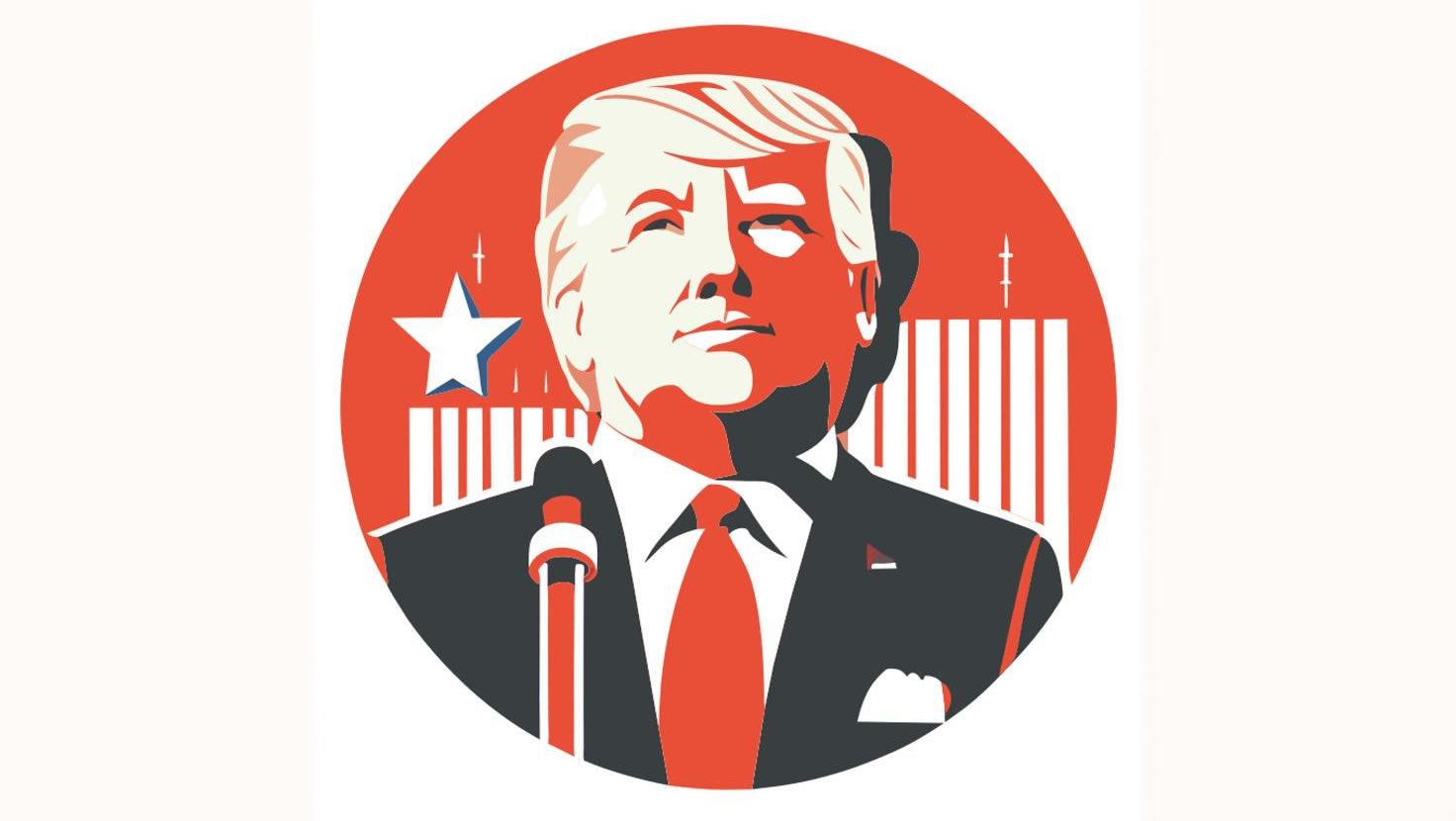President Trump and the Gulf
Al Qabas, Kuwait, February 12
President Trump has returned to the presidency of the United States, buoyed by an unforeseen landslide victory that has propelled him back into the White House. His success has left him intoxicated with triumph and armed with an agenda filled with ambitious plans that encompass both the feasible and the challenging. Undeniably, his extensive ambitions have been fueled by the overwhelming victory granted to him by the American electorate, which surpassed all projections.
This substantial victory has certainly triggered concerns within the global community, particularly given President Trump’s unconventional approach. He eschews traditional logic and norms, addressing international issues with convictions that shape the ideas and solutions he proposes. President Trump does not adhere to conventional problem-solving mechanisms. He exists in his own realm, dismissing analyses, the quality of advice, or the obviousness of logic and rationality, guided by a subjective belief in his capacity to unravel mysteries, surmount obstacles, and fill gaps. This confidence is bolstered by the formidable power wielded by the United States across various domains.
Furthermore, he introduces proposals to both allies and adversaries, proposals that frequently conflict with his role as a neutral mediator. He steadfastly maintains positions as remedies for the issues he negotiates, often with little regard for their legitimacy or legality. He remains determined to reduce the burdens shouldered by the United States in maintaining global stability, a stance that has raised apprehensions in Europe, NATO, and among allies in Asia.
Turning his focus to the Israeli-Arab conflict, he devises intricate solutions he deems viable, relying on American strength and his entrenched personal convictions. In his perspective, the endorsements from Bahrain, the Emirates, Sudan, and Morocco in the Abraham Initiatives validate his approach. Now, once again, he is resolute in advancing his role to secure an acceptable resolution with Israel and nations like Saudi Arabia, Iraq, Syria, and the remaining Gulf Cooperation Council (GCC) countries.
President Trump undoubtedly senses that the present conditions offer a unique context for peaceful resolutions, distinct from prior attempts, granting a greater prospect of success. Multiple factors contribute to his optimism.
This holiday season, give to:
Truth and understanding
The Media Line's intrepid correspondents are in Israel, Gaza, Lebanon, Syria and Pakistan providing first-person reporting.
They all said they cover it.
We see it.
We report with just one agenda: the truth.


First: The Trump administration has undoubtedly monitored substantial transformations within the Arab world. The Assad regime in Syria has vanished, succeeded by a new administration open to initiatives that untangle the complexities inherited from its predecessor. Iraq has also undergone shifts in its political landscape concerning regional matters, fostering an adaptive environment in line with the peace efforts championed by President Trump. No significant opposition exists in the region to the pursuit of an agreeable resolution to the Palestinian issue.
Second: Events in recent months, particularly the Israeli offensive on Gaza, its targeting of Hamas, and its elimination of Hezbollah’s presence in southern Lebanon, have influenced regional dynamics.
Third: Israel has successfully neutralized the Iranian military presence in Syria, losing its key ally following the disappearance of the Assad regime and paving the way for moderate forces to align with the broader regional trend. As the Iranian presence dwindles in Lebanon, Syria, and Iraq, the prospects for peace solutions acceptable to Syria, Lebanon, and Iraq have heightened.
Fourth: President Trump is evidently focusing his aspirations on Saudi Arabia’s potential involvement in the Abraham Initiative. However, he must recognize the kingdom’s rationale for abstaining. Saudi Arabia has put forth a comprehensive proposal advocating the establishment of a Palestinian state in the West Bank and Gaza in exchange for collective recognition of Israel. This stance reflects the broader Arab position. Without a Palestinian state, the region will continue to grapple with instability, turmoil, extremist proliferation, and mounting terrorism.
Fifth: Emphasizing the role of the GCC countries in global security and economic stability, these nations shoulder the responsibility of supplying essential energy at reasonable prices. Their diplomacy is rooted in their understanding of their pivotal role in the global economy, a commodity the world cannot forego without incurring chaos and peace erosion. The GCC states also actively engage in global development efforts, championing economic, social, and educational initiatives in developing countries, reflecting their commitment to advancing collective goals.
Sixth: Persistent skepticism among Arab states, including the Gulf, surrounds President Trump’s commitment to the principles necessary for easing tensions in the occupied Palestinian territories. His position, marked by strong support for Israel, including endorsing the annexation of Jerusalem and the Golan Heights, remains indifferent to the objections from Arabs and others advocating for a balanced solution. Confidence in his support for Security Council resolutions and their implementation remains elusive.
Seventh: The transformation in the Arab region presently has reshaped the context of America’s involvement, witnessing increased engagement compared to Trump’s first presidency four years ago. Gulf-American relations have expanded and evolved from a phase of strength to one of strategic partnership, a reality President Trump is likely to leverage in pursuit of his objectives.
Eighth: For President Trump to succeed in his peace endeavors, he must focus his efforts on persuading Israel to accept the establishment of a Palestinian state in the West Bank and Gaza. Without a state that embodies Palestinian aspirations, peace will remain elusive, posing significant challenges to all initiatives. The absence of a Palestinian state continues to pose a formidable barrier, demanding renewed, earnest efforts to actualize the Palestinian people’s right to statehood.
Ninth: President Trump stands to achieve success if he recognizes the imperative of establishing a Palestinian state in Gaza and the West Bank. Conversely, ignoring this necessity would undermine his prospects for resolution.
Abdullah Bishara (translated by Asaf Zilberfarb)

